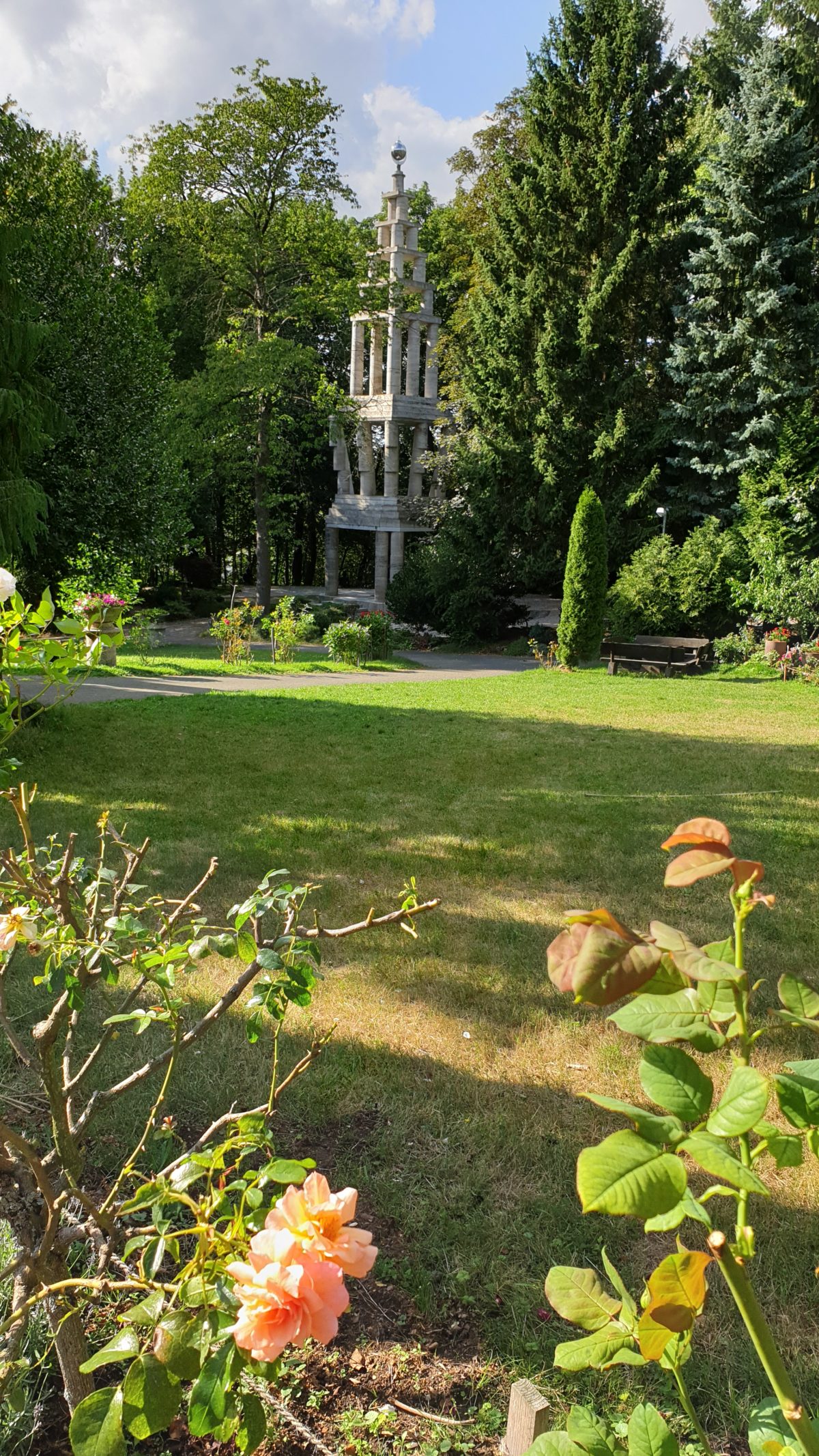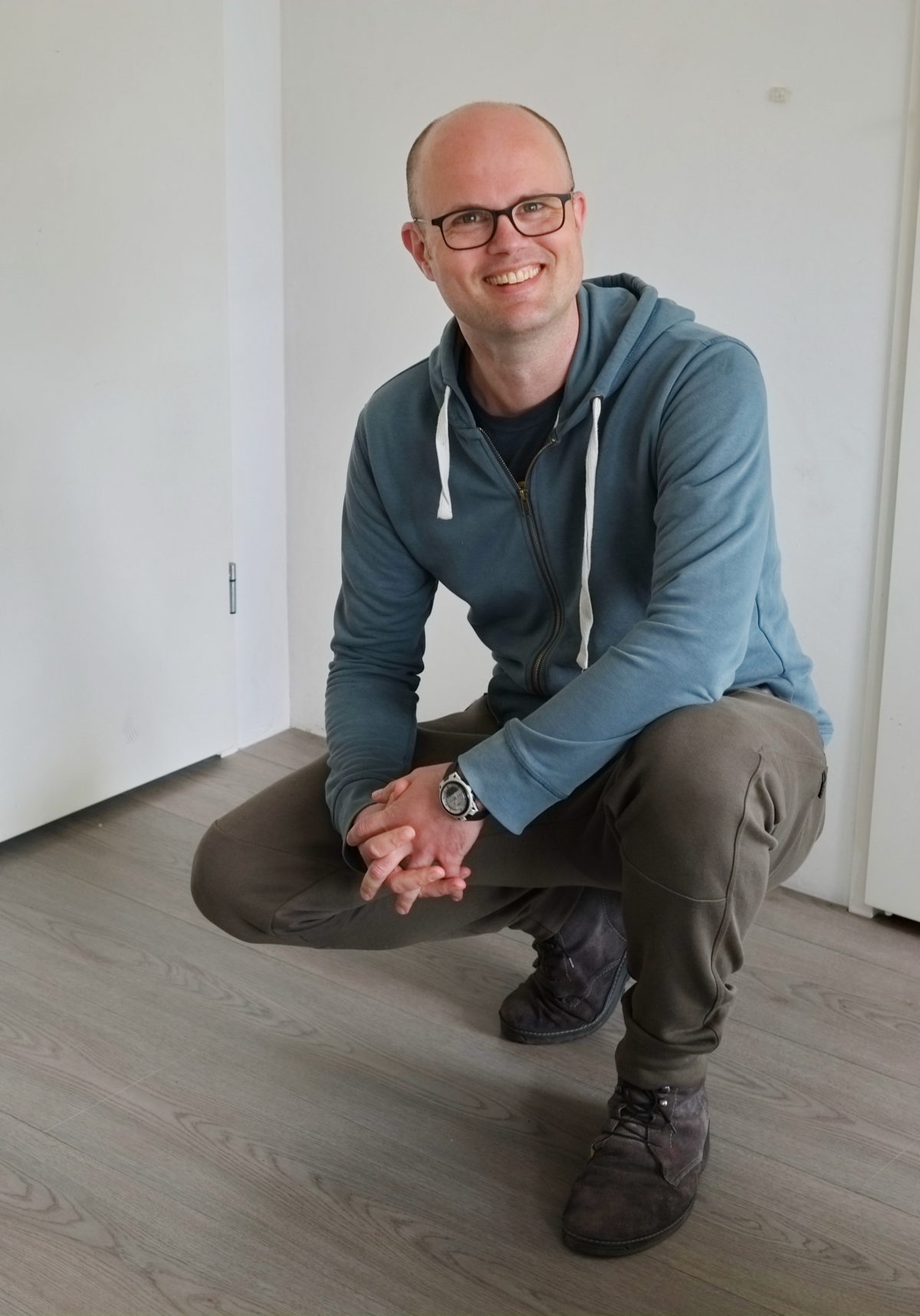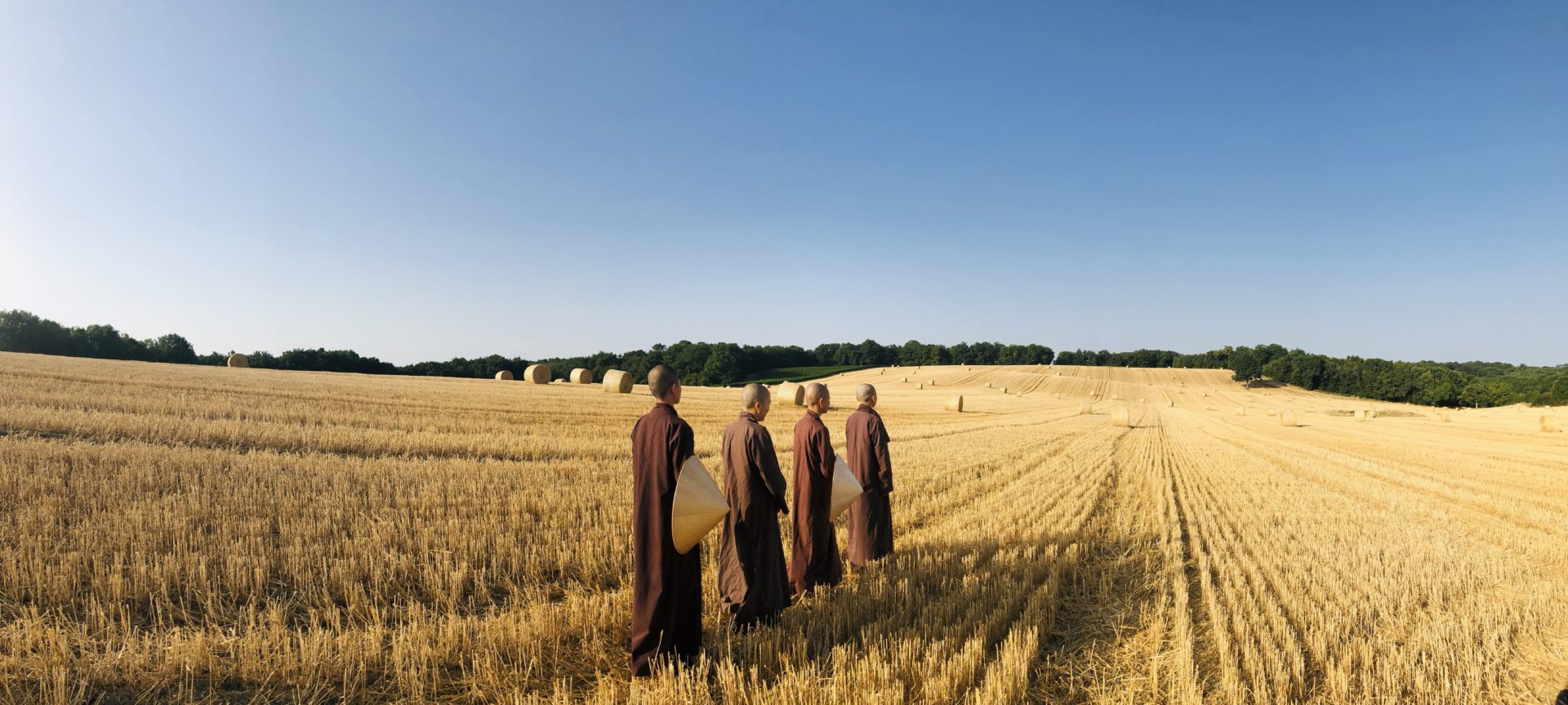By Jerôme Tonnaer

“A good practitioner always knows how to generate a feeling of happiness.” Ever since I heard Thay say this for the first time, I have been kept busy. The seed of “I fall short” manifests easily in me, so I saw this teaching through the same glasses: if I cannot generate a feeling of happiness,
By Jerôme Tonnaer

“A good practitioner always knows how to generate a feeling of happiness.” Ever since I heard Thay say this for the first time, I have been kept busy. The seed of “I fall short” manifests easily in me, so I saw this teaching through the same glasses: if I cannot generate a feeling of happiness, I am, apparently, not a good practitioner.
When I am feeling well, I find it easy to get in touch with the refreshing, healing, and nourishing elements in and around me. But as soon as suffering comes up, it is a different story. I get entangled in the suffering. To continue being a good practitioner, I force myself to smile and I try to enjoy the blue sky while I feel pain inside. It took me a long time to realize that this is more of the same: I’m turning away, almost in panic, from the suffering inside myself.
In 2013, I felt fortunate that I could present this question to Thay during a question-and-answer session. I told him I feel very drawn to the idea that a good practitioner can always generate a feeling of happiness but I don’t always succeed, so sometimes I try to force a feeling of happiness and think that I am being mindful. I asked Thay how to deal with this issue. What I understood from his answer is that breathing alone is not enough; we also need insight. And he confirmed that we should not force ourselves to be joyful and happy.
Since then, the question of always being able to generate a feeling of happiness has weighed less on me. Through Thay’s feedback and my continuing reflection on it, I finally became aware of an important, yet subconscious, conviction. I had erroneously thought that coming into contact with the beautiful elements in the here and now wasn’t the real thing. Instead, trying to do that felt a bit like a distraction for the suffering that was more real to me. Without realizing it, I believed the positive elements would ultimately never feel as real as my suffering. This depressing belief must have been passed down to me through several generations. I am glad that slowly but surely I have become more aware of this incorrect view, and the awareness has allowed it to be transformed.
This transformation accelerated during the summer retreat at the European Institute of Applied Buddhism. A nun in my Dharma sharing family said that the practice is about finding a balance between paying attention to the transformation of suffering and feeding happiness with positive elements. Because we have a strong tendency to be especially concerned with transforming suffering, the emphasis in our tradition is focused on smiling and coming into contact with what is wholesome around us. I found this explanation clarifying, and shortly afterwards I realized that mindfulness is the opposite of forgetfulness.
If an experience lingers long enough, we tend to become used to it and notice it less. Mindfulness reminds me to stay aware of things I have become accustomed to. Mindfulness is not just about rediscovering the breath and other bodily sensations. It is also about rediscovering everything that’s so abundant around us that we fail to notice. Then I see: the blue sky is really there; my working eyes are really here; the breathing of clean air is real.
I begin to realize that elements like fresh air or the breath only feel neutral because I have become accustomed to them. Mindfulness helps me to experience them as new again, rather than rationally thinking about them being somehow positive. Then I see that they are real treasures and real sources of happiness! The fact that seemingly neutral things do not always automatically feel nourishing and positive, without any effort on my part, is now no longer a sign of the absence of positivity in the world. It is a sign that they are so abundant that I have become accustomed to them, and that’s why I forget their importance. I notice that this insight melts away my previously unconscious and depressing views.
Now that I have started to see Thay’s statement about generating happiness with different eyes, I have become aware of something else, as well. Thay has not said that a good practitioner does not suffer. For me it unfolds like this: I suffer, so I am not happy, and I am a bad practitioner. When contemplating this, another belief emerges: if I suffer, I have done something wrong. It is liberating to become aware of this belief.
Aware that this belief can be strong in me, I am able to look at it from a distance. And through this distancing, the lesson about the mud and the lotus becomes a little clearer. During the summer retreat at the European Institute Applied of Buddhism, Sister True Virtue said that transformation is only possible if you accept yourself one hundred percent as you are in the present moment. This is a lesson that I have heard often, but now I realize that it also applies to my convictions about suffering and happiness. It feels like liberation, and it brings a smile to my face. And that smile comes from within, without any force.

Jerôme Tonnaer, True Healing Mountain, lives in Nijmegen, the Netherlands with his wife and five-year-old son. He has a private practice as a psychologist.

